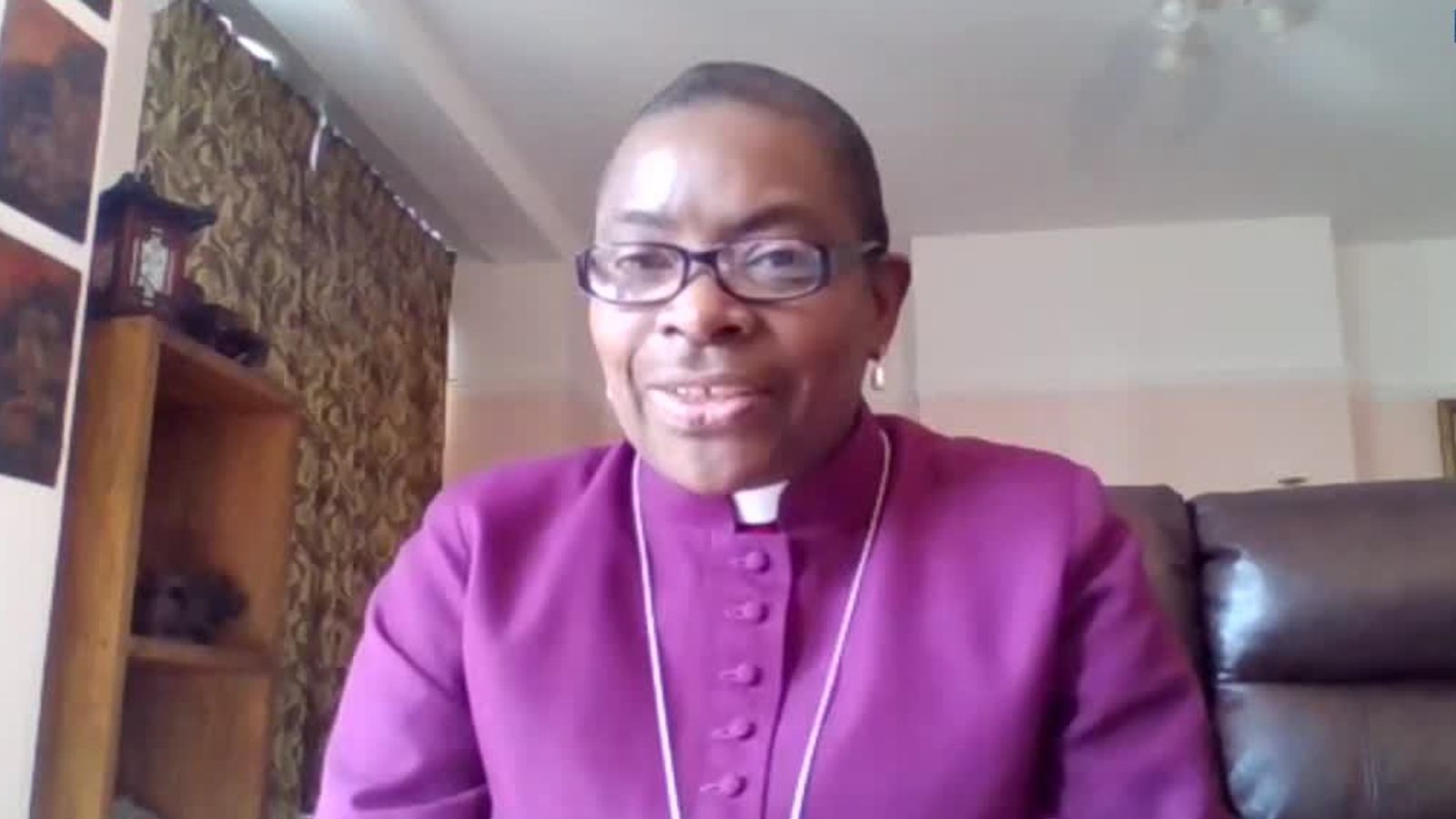Britain is not yet a model for other white-majority countries in terms of racial equality, according to the Church of England’s first black female bishop.
The Bishop of Dover, the Rt Rev Rose Hudson-Wilkin, said she was concerned about the findings of a government review on racism published last week.
The Commission on Race and Ethnic Disparities – which was appointed by Prime Minister Boris Johnson in response to last summer’s Black Lives Matter protests – published a 258-page report.
Please use Chrome browser for a more accessible video player
The report said that the UK “should be regarded as a model for other white-majority countries” although it cannot be considered “a post-racial society”.
But Ms Hudson-Wilkin said Britain would only become a model for similar nations when black people are customers in establishments, rather than just cleaning and serving.
Speaking to ITV’s Good Morning Britain, she said: “I think what concerned me most about that report was about this blanket thing that Britain can now be an example to other majority-white people.
“No, it is not an example. Is it getting some things right? Absolutely yes.
“But we will become an example when I walk into large establishments, or any establishments, for that matter, and I don’t see black people only sweeping the floors, doing the cleaning and the catering.
“I will know when I see black people sitting around every table up and down this land. When I see black people in leadership in all walks of life, then we will be able to say – and I will happily say – that Britain can become a model country,” she added.
The bishop said she thought there were “serious issues” in the report if it found that Britain was currently a model country for dealing with racial disparities.
The commission stated that the UK was no longer a country where the “system is deliberately rigged against ethnic minorities”, and its chairman said the authors had found no evidence of institutional racism in the country.
The report said that geography, family influence, socio-economic background, culture and religion all impact the life chances of Britons far more than racism.
And it criticised the “confusing” way the term “institutional racism” has been applied, saying this should only be used when deep-seated, systemic racism is proved and not as a “catch-all” phrase for any “micro-aggression”.
Ms Hudson-Wilkin said: “One of the dangers… when some of us have achieved and attained certain heights, whatever those heights may be, we run the danger of thinking it’s all well.
“It is not and we should never mistake the fact that we have attained something to think that it is perfectly all right.”






















